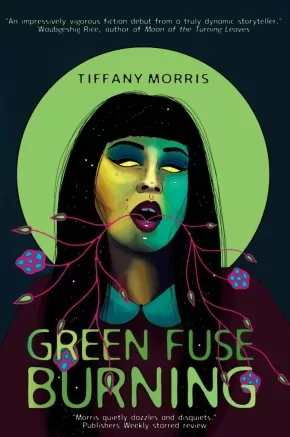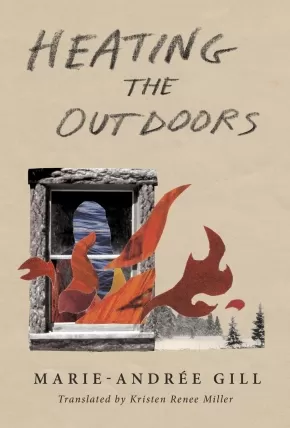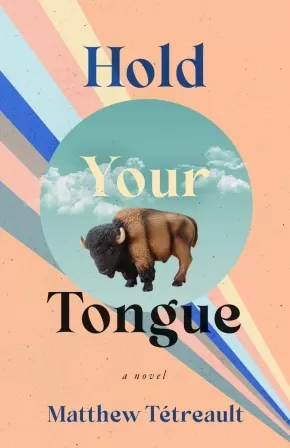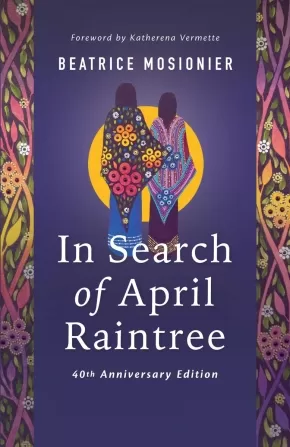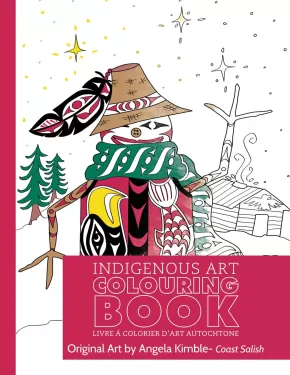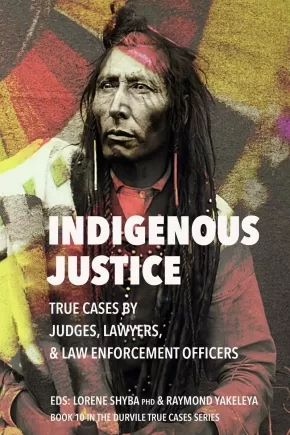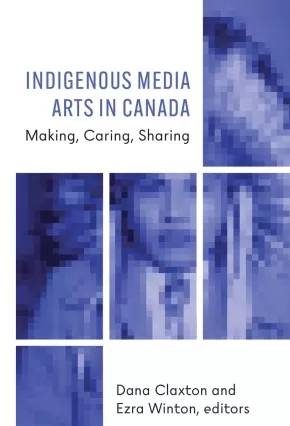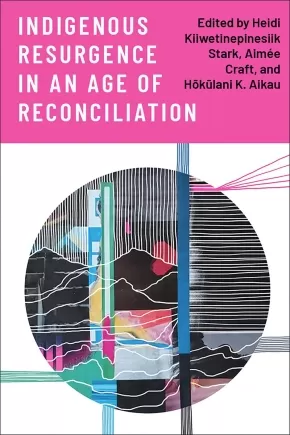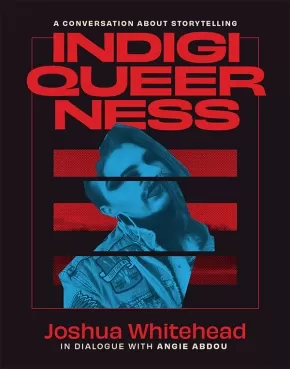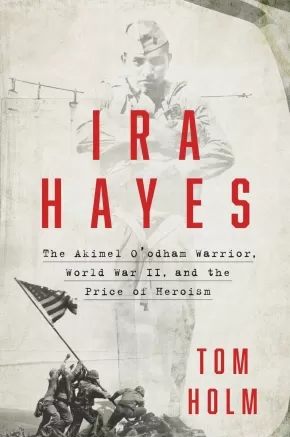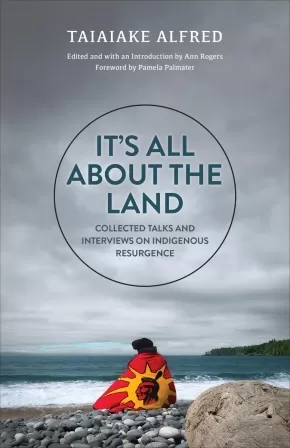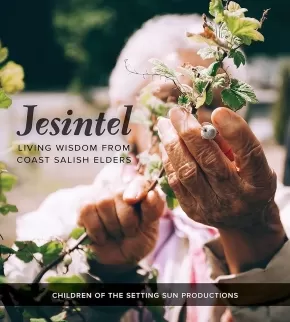
Books
391
-
405
of
1928 Results;
Sort By
Go To
of 129
Green Fuse Burning
$19.99
Format:
Paperback
Text Content Territories:
Indigenous Canadian; First Nations; Mi'kmaq;
Reading Level: N/A
ISBN / Barcode: 9781778092664
Synopsis:
Synopsis:
After the death of her estranged father, artist Rita struggles with grief and regret. There was so much she wanted to ask him – about his childhood, their family, and the Mi'kmaq language and culture from which Rita feels disconnected. But when Rita's girlfriend Molly forges an artist's residency application on her behalf, winning Rita a week to paint at an isolated cabin, Rita is both furious and intrigued. The residency is located where her father grew up.
On the first night at the cabin, Rita wakes to strange sounds. Was that a body being dragged through the woods? When she questions the locals about the cabin's history, they are suspicious and unhelpful. Ignoring her unease, Rita gives in to dark visions that emanate from the forest's lake and the surrounding swamp. She feels its pull, channelling that energy into art like she's never painted before. But the uncanny visions become more insistent, more intrusive, and Rita discovers that in the swamp's decay the end of one life is sometimes the beginning of another.
Reviews
"Green Fuse Burning is an impressively vigorous fiction debut from a truly dynamic storyteller. Tiffany Morris has laid out a concise and creepy tale that mesmerizes as it weaves through several realms, from the tangible to the spiritual. I was captivated by the looming mystery and the striking imagery that carried me like a current to the story's monumental resolution. This book is a must-read in new speculative fiction!" - Waubgeshig Rice, author of Moon of the Turning Leaves
"Morris quietly dazzles and disquiets in this weird horror novella . . . Poetic and grotesque imagery drives the novella's horror, with fluid narration fostering a sense of disconnect and dread . . . This is a subtle and refreshing twist on the cabin in the woods trope." - Publishers Weekly starred review
"A verdant alienation seeps through every page as Morris reimagines the possibilities of decay, a desperate isolation scouring the mind to reveal a torrid, seething strangeness beneath, the inevitable reckoning gathering its strength below the calm surface of the pond." - Andrew F. Sullivan, author of The Marigold and The Handyman Method
Additional Information
112 pages | 6.12" x 9.03" | Paperback
Heating the Outdoors
$20.00
Format:
Paperback
Text Content Territories:
Indigenous Canadian; First Nations; Innu (Montagnais-Naskapi); Mashteuiatsh (Pekuakamiulnuatsh);
Reading Level: N/A
ISBN / Barcode: 9781771668149
Synopsis:
Synopsis:
You're the clump of blackened spruce
that lights my gasoline-soaked heart
It's just impossible you won't be back
to quench yourself in my crème-soda
ancestral spirit
Irreverent and transcendent, lyrical and slang, Heating the Outdoors is an endlessly surprising new work from award-winning poet Marie-Andrée Gill.
In these micropoems, writing and love are acts of decolonial resilience. Rooted in Nitassinan, the territory and ancestral home of the Ilnu Nation, they echo the Ilnu oral tradition in Gill's interrogation and reclamation of the language, land, and interpersonal intimacies distorted by imperialism. They navigate her interior landscape—of heartbreak, humor, and, ultimately, unrelenting light—amidst the boreal geography.
Heating the Outdoors describes the yearnings for love, the domestic monotony of post-breakup malaise, and the awkward meeting of exes. As the lines between interior and exterior begin to blur, Gill's poems, here translated by Kristen Renee Miller, become a record of the daily rituals and ancient landscapes that inform her identity not only as a lover, then ex, but also as an Ilnu and Québécoise woman.
Awards
- 2020 Indigenous Voices Award for Best Published Poetry in French winner. This book is the translated version in English.
Reviews
"I'm literally captivated by the accuracy, the beauty. They taste of honey, these poems." —Karine Villeneuve, bookseller, Page par Page
"Heating the Outdoors is a stunning collection exploring heartbreak, and the awkward dance between exes from the positionality of an Ilnu and Québécoise woman whose poetic 'gasoline-soaked heart' yearns deeply for love. Translated by Kristen Renee Miller from French into English, Gill's Heating the Outdoors re-wilds the ritualistic humdrum of domestic life while honouring the land and her 'crème-soda ancestral spirit.'" —Shannon Webb-Campbell, author of Lunar Tides and I Am a Body of Land
"These poems live in a bachelor apartment over the corner store. They're on the bus looking out at the muddy hangtime between winter and spring, in a too-warm jacket. These poems will make you a cup of tar-coffee and tell you about the ache of desire in the language of crunching snow. You'll come back to them over and over again to listen." —Carleigh Baker, author of Bad Endings
“Marie-Andrée Gill’s spare, luminous micropoems are endlessly surprising, twisting out, into, and unto themselves like complicated lovers. Defiantly fragmentary, these are stunning shards of tongues, embodied vernaculars slowly, steadily unsettling grammars. Kristen Renee Miller’s translations retain the elegance and shimmer of the originals while wondrously conveying their knottedness, their syntax of skin. When at last we reach Nitassinan, we are reminded of the worlds poetry documents, but also of the worlds it creates. This is poetry that claims the power to 'gnaw the meat off each day and spit out the pin bones' through a language as unresolved as our decolonial dreams and as necessary as our sovereign desires.” —Urayoán Noel, author of Transversal
Additional Information
98 pages | 5.25" x 7.75" | Paperback
Held by the Land: A Guide to Indigenous Plants for Wellness
$32.99
Format:
Hardcover
Text Content Territories:
Indigenous Canadian; First Nations; Salish; Coast Salish; Squamish;
ISBN / Barcode: 9781577152941
Synopsis:
Synopsis:
Author Leigh Joseph, an ethnobotanist and a member of the Squamish Nation, provides a beautifully illustrated essential introduction to Indigenous plant knowledge.
Plants can be a great source of healing as well as nourishment, and the practice of growing and harvesting from trees, flowering herbs, and other plants is a powerful way to become more connected to the land. The Indigenous Peoples of North America have long traditions of using native plants as medicine as well as for food. Held by the Land honors and shares some of these traditions, offering a guide to:
- Harvesting herbs and other plants and using them topically
- North American plants that can treat common ailments, add nutrition to your diet, become part of your beauty regime, and more
- Stories and traditions about native plants from the author's Squamish culture
- Using plant knowledge to strengthen your connection to the land you live on
Early chapters will introduce you to responsible ways to identify and harvest plants in your area and teach you how to grow a deeper connection with the land you live on through plants. In the plant profiles section, common plants are introduced with illustrations and information on their characteristics, range, how to grow and/or harvest them, and how to use them topically and as food. Special features offer recipes for food and beauty products along with stories and traditions around the plants.
This beautiful, full-color guide to Indigenous plants will give you new insights into the power of everyday plants.
Additional Informaiton
192 pages | 8.00" x 9.25" | Hardcover
Hold Your Tongue: A Novel
$22.95
Format:
Paperback
Text Content Territories:
Indigenous Canadian; Métis;
Reading Level: N/A
ISBN / Barcode: 9781774390719
Synopsis:
Synopsis:
Upon learning his great-uncle Alfred has suffered a stroke, Richard sets out for Ste. Anne, in southeastern Manitoba, to find his father and tell him the news. Waylaid by memories of his stalled romance, tales of run-ins with local Mennonites, his job working a honey wagon, and struck by visions of Métis history and secrets of his family's past, Richard confronts his desires to leave town, even as he learns to embrace his heritage.
Evoking an oral storytelling epic that weaves together one family's complex history, Hold Your Tongue asks what it means to be Métis and francophone. Recalling the work of Katherena Vermette and Joshua Whitehead, Matthew Tétreault's debut novel shines with a poignant, but playful character-driven meditation on the struggles of holding onto "la langue," and marks the emergence of an important new voice.
Reviews
"Inspired by deep knowledge of his French-Métis homeland, Matthew Tétreault has given us a rich, beautifully written novel. In this story you'll meet unforgettable characters who "sprang from the soil." This intricate yarn is an evocative detective story, a search for the first betrayals and deviations, a glorious patchwork of vision and memory, buoyed by love as tough and vulnerable as the land that nurtured it. The past is palpable, vibrant in these pages, full of promise, like 'seedlings.'"--Margaret Sweatman, author of The Gunsmith's Daughter
"The wonderful thing about Hold Your Tongue is that it definitely does not hold its tongue. English, French, and Michif gallop across its pages, mingling and colliding like the fractious history of the Canadian West echoing into the present. What James Joyce did for the voices of the Irish Matthew Tétreault has done for those of his own people. This earthy, wise, big-hearted novel about a Métis community's tangled past and uncertain future shouts, gossips, mourns, jokes, confesses, and sings. Before you reach the end you'll be singing along with it."--Thomas Wharton, award-winning author of Icefields and The Book of Rain
"Witty, down-to-earth, and yet transformative, Matt Tétreault's Hold Your Tongue sets a new benchmark for literature in Canada, folding in francophone and Métis voice and culture and navigating the tensions of family, history, self, and place. Marked both by verisimilitude and contemplation, Hold Your Tongue is a journey through the geography of identity that emerges speaking with a fresh, assured voice."--Conrad Scott, author of Water Immersion
"With cutting language, Matthew Tétreault weaves a narrative that runs us through history and love of land while simultaneously questioning a modern prairie existence. His distinctive voice brings a reader along with the narrator as he navigates the passing of his great-uncle Alfred and, with that, the loss of generations worth of knowledge. At the same time, the narrator questions a future and what it really means to lose the land you love, the question of leaving, and what coming back home really looks like. From brawls with the neighbouring small towns to being buried in your favourite camo ball cap to figuring out a future that may never really exist, this is a read that will keep you sucked into the pages like a hose pumping out the honey bucket."--Conor Kerr, author of Avenue of Champions
Additional Information
272 pages | 5.50" x 8.50" | Paperback
Hopeless in Hope
$16.95
Format:
Paperback
Text Content Territories:
Indigenous Canadian; First Nations; Cree (Nehiyawak);
ISBN / Barcode: 9781774920831
Synopsis:
"It’s wonderful to read an author who so artfully channels the voice of youth. As Eva navigates serious challenges like living in a group home and being separated from her family, she observes the world around her, learning lessons about love, the ties of family and friendship, the unfairness of poverty, and the power of finding your voice. Oh, and also soup—the tremendous healing power of a bowl of homemade soup." — Jennifer Moss, UBC Creative Writing Instructor and New Media Storyteller
"An intense, compact and ultimately hopeful narrative that looks deeply into the complexity of foster care and the legacy of colonization."— Chris Gustafson, High School Librarian
Synopsis:
We live in a hopeless old house on an almost-deserted dead-end street in a middle-of-nowhere town named Hope. This is the oldest part of Hope; eventually it will all be torn down and rebuilt into perfect homes for perfect people. Until then, we live here: imperfect people on an imperfect street that everyone forgets about.
For Eva Brown, life feels lonely and small. Her mother, Shirley, drinks and yells all the time. She’s the target of the popular mean girl, and her only friend doesn’t want to talk to her anymore. All of it would be unbearable if it weren’t for her cat, Toofie, her beloved nohkum, and her writing, which no one will ever see.
When Nohkum is hospitalized, Shirley struggles to keep things together for Eva and her younger brother, Marcus. After Marcus is found wandering the neighbourhood alone, he is sent to live with a foster family, and Eva finds herself in a group home.
Furious at her mother, Eva struggles to adjust—and being reunited with her family seems less and less likely. During a visit to the hospital, Nohkum gives Eva Shirley’s diary. Will the truths it holds help Eva understand her mother?
Heartbreaking and humorous, Hopeless in Hope is a compelling story of family and forgiveness.
Reviews
"If being able to hold two contrasting thoughts in your mind makes you a genius, Nevaeh is a genius. She sees who people really are—and who they want to be—and learns to open her heart to them no matter what. The pages of Hopeless in Hope end up being filled with the best kind of hope—hope that grows from a heart feeling full and right even when life pitches us around." — Alison Acheson, author of Dance Me to the End
"It’s wonderful to read an author who so artfully channels the voice of youth. As Eva navigates serious challenges like living in a group home and being separated from her family, she observes the world around her, learning lessons about love, the ties of family and friendship, the unfairness of poverty, and the power of finding your voice. Oh, and also soup—the tremendous healing power of a bowl of homemade soup." — Jennifer Moss, UBC Creative Writing Instructor and New Media Storyteller
"An intense, compact and ultimately hopeful narrative that looks deeply into the complexity of foster care and the legacy of colonization."— Chris Gustafson, High School Librarian
Educator Information
Recommended for ages 12+
Additional Information
216 pages | 5.50" x 8.25" | Paperback
In Search of April Raintree: 40th Anniversary Edition
$22.95
Format:
Paperback
Text Content Territories:
Indigenous Canadian; Métis;
Reading Level: N/A
ISBN / Barcode: 9781774920916
Synopsis:
Synopsis:
Memories. Some memories are elusive, fleeting, like a butterfly that touches down and is free until it is caught. Others are haunting. You'd rather forget them, but they won't be forgotten. And some are always there. No matter where you are, they are there, too.
In this moving story of legacy and reclamation, two young sisters are taken from their home and family. Powerless in a broken system, April and Cheryl are separated and placed in different foster homes. Despite the distance, they remain close, even as their decisions threaten to divide them emotionally, culturally, and geographically. As one sister embraces her Métis identity, the other tries to leave it behind.
Will the sisters’ bond survive as they struggle to make their way in a society that is often indifferent, hostile, and violent?
Beloved for more than 40 years, In Search of April Raintree is a timeless story that lingers long after the final page. This anniversary edition features a foreword by Governor General’s Award–winning author Katherena Vermette, and an afterword by University of Regina professor, Dr. Raven Sinclair (Ôtiskewâpit), an expert on Indigenous child welfare.
Educator Information
This 40th anniversary edition features a foreword by Governor General’s Award–winning author Katherena Vermette, and an afterword by University of Regina professor, Dr. Raven Sinclair (Ôtiskewâpit), an expert on Indigenous child welfare.
A critical edition of this work, which includes ten critical essays accompanying the text, is available here: In Search of April Raintree: Critical Edition
A version written specifically for students in grades 9-12 that does not contain the graphic scene that is contained in this original version is available here: April Raintree
Find a teacher guide for In Search of April Raintree and April Raintree here: Teacher Guide for In Search of April Raintree and April Raintree: A Trauma-Informed Approach to Teaching Stories of Indigenous Survivance, Family Separation, and the Child Welfare System
Additional Information
343 pages | 5.50" x 8.50" | Paperback | Critical Edition
Indigenous Art Colouring Book: Holidays
$10.00
Artists:
Format:
Paperback
Text Content Territories:
Indigenous Canadian; First Nations; Salish; Coast Salish;
ISBN / Barcode: COLOURING029
Synopsis:
Synopsis:
This Indigenous Art Colouring Book features Holiday designs to colour from Coast Salish artist Angela Kimble.
Included are 28 colouring pages based on original pieces of artwork created by the artist, as well as information on the artist's cultural background and the artist's biography. The artist is paid royalties for the sale of this product.
Additional Information
8.5" x 11" | 28 Colouring Pages | Made in Canada
Indigenous Justice: True Cases by Judges, Lawyers, and Law Enforcement Officers
$35.00
Editors:
Format:
Paperback
Text Content Territories:
Indigenous Canadian;
ISBN / Barcode: 9781990735264
Synopsis:
Synopsis:
In the spirit of truth and reconciliation, judges, lawyers, and law enforcement officers write about working with First Nations, Métis, and Inuit Peoples through their trials and tribulations with the criminal justice system. The stories are a mix of previously published essays from the Durvile True Cases anthologies with an equal number of new chapters by legal and law enforcement professionals including Justice Thomas Berger (posthumous), Justice Nancy Morrison, Justice John Reilly, Senator Kim Pate, lawyers Eleanore Sunchild, Brian Beresh, and John L. Hill, and parole and police officers Doug Heckbert, Ernie Louttit, Val Hoglund, and Sharon Bourque.
Reviews
“I’m struck by how the True Cases series has a multiplicity of authentic perspectives that are able to be our proxy or conduit into amazing worlds... Stories that are happening in our community and to our neighbours that we should know about but don’t.” —Grant Stovers, CKUA Radio
Additional Information
288 pages | 6.00" x 9.00" | Paperback
Indigenous Media Arts in Canada: Making, Caring, Sharing
$46.99
Editors:
Format:
Paperback
Text Content Territories:
Indigenous Canadian;
Reading Level: N/A
ISBN / Barcode: 9781771125413
Synopsis:
Synopsis:
Indigenous and settler scholars and media artists discuss and analyze crucial questions of narrative sovereignty, cultural identity, cultural resistance, and decolonizing creative practices.
Humans are narrative creatures, and since the dawn of our existence we have shared stories. Storytelling is what connects us, what helps us give shape and understanding to the world and to each other. Who tells whose stories in which particular ways leads to questions of belonging, power, relationality, community and identity. This collection explores those issues with a focus on settler-Indigenous cultural politics in the country known as Canada, looking in particular at Indigenous representation in media arts. Chapters feature roundtable discussions, interviews, film analyses, resurgent media explorations, visual culture advocacy and place-based practices of creative expression.
Eclectic in scope and diverse in perspective, Indigenous Media Arts in Canada is unified by an ethic of conciliation, collaboration, and cultural resistance. Engaging deftly and thoughtfully with instances of cultural appropriation as well as the oppressive structures that seek to erode narrative sovereignty, this collection shines as a crucial gathering of thoughtful critique, cultural kinship, and creative counterpower.
Reviews
“Dana Claxton and Ezra Winton’s collection of conversations between, for, and about Indigenous media makers poses vital, critical, and generative questions about Indigenous film, film festivals and institutions, residential school histories, and decolonization without providing easy answers. These conversations are at times joyful expressions of the radical possibilities of media arts and at times painful provocations about settler colonial violence and its representational apparatuses. The chapters, written by the most brilliant and creative minds in contemporary Indigenous film, are paradigm-shifting love letters to the land, lived experience, collaboration, and futurity.” —Michelle Raheja, Associate Professor, Department of English, University of California, Riverside, author of Reservation Reelism: Redfacing, Visual Sovereignty, and Representations of Native Americans in Film
Educator Information
Table of Contents
Indigenous Media Arts in Canada: Making, Caring, Sharing – Edited by Dana Claxton and Ezra Winton
Acknowledgements
Introduction: Seeing, Knowing, Lifting – Dana Claxton and Ezra Winton
Part I – Decolonizing Media Arts Institutions
Part I Introduction – Dana Claxton and Ezra Winton
1. Our Own Up There: A Discussion at imagineNATIVE – Danis Goulet and Tasha Hubbard with Jesse Wente, Alethea Arnaquq-Baril and Shane Belcourt
2. Curating the North: Documentary Screening Ethics and Inuit Representation in Canada – Ezra Winton and Alethea Arnaquq-Baril
3. Sights of Homecoming: Locating Restorative Sites of Passage in Zacharias Kunuk’s Festival Performance of Angirattut – Claudia Sicondolfo
Part II – Protecting Culture
Part II Introduction – Dana Claxton and Ezra Winton
4. Addressing Colonial Trauma Through Mi’kmaw Film – Margaret Robinson and Bretten Hannam
5. Not Reconciled: The Complex Legacy of Films on Canadian "Indian" Residential Schools – Brenda Longfellow
6. The Resurgence of Indigenous Women in Contemporary Québec Cinema – Karine Bertrand
7. “Our Circle Is Always Open”: Indigenous Voices, Children’s Rights, and Spaces of Inclusion in the Films of Alanis Obomsawin – Joanna Hearne
Part III – Methods/Knowledges/Interventions
Part III Introduction Dana Claxton and Ezra Winton
8. Indigenous Documentary Methodologies: ChiPaChiMoWin: Telling Stories – Jules Arita Koostachin
9. Marking and Mapping Out Embodied Practices through Media Art – Julie Nagam and Carla Taunton
10. Curatorial Insiders/Outsiders: Speaking Outside and Collaboration as Strategic Intervention – Toby Katrine Lawrence
11. The Generative Hope of Indigenous Interactive Media: Ecological Knowledge and Indigenous Futurism – Michelle Stewart
Part IV - Resurgent Media/Allies/Advocacy
Part IV Introduction – Dana Claxton and Ezra Winton + Sasha Crawford-Holland and Lindsay LeBlanc
12. “Making Things Our [Digital] Own”: Lessons on Time and Sovereignty from Indigenous Computational Art – Sasha Crawford-Holland and Lindsay LeBlanc
13. Careful Images: Unsettling Testimony in the Gladue Video Project – Eugenia Kisin and Lisa Jackson
Concluding Thoughts
Part 1: Beyond Words and Images – Ezra Winton and Dana Claxton Part 2: Setting the Record Straight – Lisa Jackson
About the Contributors
References
Index
Contributors
Alethea Arnaquq-Baril
Shane Belcourt
Karine Bertrand
Dana Claxton
Sasha Crawford-Holland
Danis Goulet
Bretten Hannam
Joanna Hearne
Tasha Hubbard
Lisa Jackson
Eugenia Kisin
Jules Arita Koostachin
Toby Katrine Lawrence
Lindsay LeBlanc
Brenda Longfellow
Julie Nagam
Margaret Robinson
Claudia Sicondolfo
Michelle Stewart
Carla Taunton
Jesse Wente
Ezra Winton
Additional Information
450 pages | 6.00" x 9.00" | Paperback
Indigenous Resurgence in an Age of Reconciliation
$39.95
Format:
Paperback
Text Content Territories:
Indigenous Canadian;
Reading Level: N/A
ISBN / Barcode: 9781487544607
Synopsis:
Synopsis:
What would Indigenous resurgence look like if the parameters were not set with a focus on the state, settlers, or an achievement of reconciliation? Indigenous Resurgence in an Age of Reconciliation explores the central concerns and challenges facing Indigenous nations in their resurgence efforts, while also mapping the gaps and limitations of both reconciliation and resurgence frameworks.
The essays in this collection centre the work of Indigenous communities, knowledge, and strategies for resurgence and, where appropriate, reconciliation. The book challenges narrow interpretations of indigeneity and resurgence, asking readers to take up a critical analysis of how settler colonial and heteronormative framings have infiltrated our own ways of relating to our selves, one another, and to place. The authors seek to (re)claim Indigenous relationships to the political and offer critical self-reflection to ensure Indigenous resurgence efforts do not reproduce the very conditions and contexts from which liberation is sought.
Illuminating the interconnectivity between and across life in all its forms, this important collection calls on readers to think expansively and critically about Indigenous resurgence in an age of reconciliation.
Reviews
"This book is an undoubtedly critical, original, and powerful contribution to the field of Indigenous studies and beyond. With sound scholarship, the contributors show us how disentangling from reconciliation discourses is not only a tool of critique, but also a methodology for understanding how settler concepts of territoriality and authority have shaped Indigenous peoples’ understandings of themselves, their governments, and their relationships to land and to one another." — Shiri Pasternak, Assistant Professor of Criminology, Toronto Metropolitan University
"The relationship between reconciliation and resurgence is a complicated and, at times, deeply contested one. This volume does an excellent job of situating itself within the wider literature on resurgence and reconciliation and their conflicted and/or complimentary relationship. This is an important contribution to a fraught conversation, and it provides many different perspectives that help to, if not resolve, then guide the conversation beyond its current roadblocks towards something better." — Joshua Nichols, Assistant Professor in the Faculty of Law, McGill University
Additional Information
280 pages | 6.00" x 9.00" | Paperback
Indigiqueerness: A Conversation about Storytelling
$19.99
Format:
Paperback
Text Content Territories:
Indigenous Canadian; First Nations; Anishinaabeg; Oji-Cree;
Reading Level: N/A
ISBN / Barcode: 9781771993913
Synopsis:
Synopsis:
Everything I’ve crafted and made has been a whirlwind of community and folks and friends and lovers and family. I kind of write as an animated avatar. A lot of my material comes from listening fiercely to those around me and witnessing that which is discarded or not seen." - Joshua Whitehead
Evolving from a conversation between Joshua Whitehead and Angie Abdou, Indigiqueerness is part dialogue, part collage, and part memoir. Beginning with memories of his childhood poetry and prose and travelling through the library of his life, Whitehead contemplates the role of theory, Indigenous language, queerness, and fantastical worlds in all his artistic pursuits. This volume is imbued with Whitehead’s energy and celebrates Indigenous writers and creators who defy expectations and transcend genres.
Additional Information
48 pages | 5.50" x 7.00" | Paperback
Ira Hayes: The Akimel O'odham Warrior, World War II, and the Price of Heroism
$38.00
Format:
Hardcover
Text Content Territories:
Indigenous American; Native American; Pima (Akimel O'odham);
Grade Levels: 12; University/College;
ISBN / Barcode: 9781538709504
Synopsis:
Synopsis:
The gripping, forgotten tale of Ira Hayes—a Native American icon and World War II legend who famously helped raise the flag at Iwo Jima but spent the latter half of his life haunted by being a war hero.
IRA HAYES tells the story of Ira Hamilton Hayes from the perspective of a Native American combat veteran of the Vietnam generation. Hayes, along with five other Marines, was captured in Joe Rosenthal’s iconic photograph of raising the stars and stripes on Mount Suribachi during the battle for the Japanese Island of Iwo Jima. The photograph was the inspiration and model for the U.S. Marine Corps War Memorial in Arlington.
Between the time he helped raise that flag and his death—and beyond—he was the subject of more newspaper columns than any other Native person. He was hailed as a hero and maligned as a chronic alcoholic unable to take care of himself. IRA HAYES explores these fluctuating views of Ira Hayes. It reveals that they were primarily the product of American misconceptions about Native people, the nature of combat, and even alcoholism. Like most surviving veterans of combat, Ira did not think of himself as a heroic figure. There can be no doubt that Ira suffered from PTSD, which is a compound of survivor’s guilt, the shock of seeing death, especially of one’s friends, and the isolation brought on by feeling that no one could understand what he had been through. Ira’s life has been a subject of two motion pictures and a television drama. All these dramas sympathize with him, but ultimately fail to see his binge drinking as his way of temporarily escaping the melancholy, the rage he felt, his sense of betrayal, and the sheer boredom of peacetime.
IRA HAYES breaks apart the complexities of Ira’s short life in honor of all Native veterans who have been to war in the service of the United States. This is equally their story.
Reviews
"Written with page-turning excitement, Tom Holm, a Native scholar and veteran of Vietnam, offers an Indigenous realism through the heroic life of Ira Hayes, an Akimel O’odam marine in World War II. You will re-live the life of Ira Hayes who helped to raise the American flag at Iwo Jima after the bloodiest battle in Pacific during the war and became a legend. A gifted storyteller, Holm writes with an engaging insight making the reader feel right beside Ira Hayes in boarding school, combat, and struggling with PTSD."—Donald L. Fixico (Muscogee, Seminole, Shawnee and Sac and Fox), Regents’ and Distinguished Foundation Professor of History, Arizona State University
“WWII hero Ira Hayes would have appreciated this book. Author Tom Holm uses Ira’s courage and humility as tools to dissect the historic and current fate of his Native American people. And Ira’s challenges focus light upon the tragedy of war and the horrors of PTSD. A meaningful and beautifully-researched read.”—Judy Avila, bestselling author of Code Talker: The First and Only Memoir by One of the Original Navajo Code Talkers of WWII
“Tom Holm brilliantly and respectfully offers readers a rich and long overdue account of the life and tragic death of Ira Hayes that pierces through the stereotypes and misconceptions that plagued his during his life and long after his passing. It is a sensitive work that reminds us of the enormous emotional, psychological, and cultural difficulties Hayes had to cope with throughout his life. It is a splendid and timely contribution.” —Dr. David Wilkins, E. Claiborne Robins Distinguished Professor in Leadership Studies and citizen of the Lumbee Nation of North Carolina
“As a historian and a veteran, Tom Holm is uniquely positioned to write this important story, the first scholarly treatment of Hayes' life and times. Holm examines Hayes' struggles with fame and illness after World War II while offering insights into a post-war America hostile to Native identity and sovereignty despite the sacrifices made by Hayes and thousands of other Native Americans.”—Paul C. Rosier, Ph.D., Professor of History at Villanova University and author of Serving Their Country: American Indian Politics and Patriotism in the Twentieth Century
"An excellent piece of scholarship; the definitive work on this Native American veteran. Carefully nuanced and rich in context, Holm transcends and dispels the stereotypes of Ira Haye’s life to show the complexity of the Akimel O’odham experience, the impacts of World War II, the social use of alcohol in 1940s America, and his personal experiences from poverty, racism, and the unwanted and unending attention following the flag raising on Mount Suribachi. As Holm concludes, 'He should be remembered for who he was rather that for what the dominant society has been led to believe about him.'"—William C. Meadows, Missouri State University
"Tom Holm deservedly looms large in the history of Indigenous peoples’ military service in the wars of the twentieth century. In his new book, IRA HAYES, Holm reintroduces us to the iconic individual in ‘The Photograph’ of the flag-raising on Mount Suribachi. Holm extricates Hayes from the trope of tragedy and the racist stereotype of the ‘drunken Indian’ into which his story was confined during his lifetime and in which it remained trapped since his death. Instead, a complex Ira Hayes comes to life in the long context of his Akimel O’odham culture and community, American colonialism and racism, his military service, and his likely suffering from Post-Traumatic Stress Disorder. This tour de force is, by turns, compelling, devastating, and intensely humanizing."—R. Scott Sheffield, Professor of History at University of the Fraser Valley and co-author of Indigenous Peoples and the Second World War: The Politics, Experiences and Legacies of War in the US, Canada, Australia and New Zealand
“A strong contribution to the literature of World War II, Native American warriors, and the unseen wounds of war.”—Kirkus Reviews
Additional Information
320 pages | 6.35" x 9.25" | Hardcover
It's All about the Land: Collected Talks and Interviews on Indigenous Resurgence
$29.95
Editors:
Format:
Paperback
Text Content Territories:
Indigenous Canadian; First Nations; Haudenosaunee (Iroquois); Kanyen'keha:ka (Mohawk); Indigenous;
Reading Level: N/A
ISBN / Barcode: 9781487552831
Synopsis:
Synopsis:
Illuminating the First Nations struggles against the Canadian state, It’s All about the Land exposes how racism underpins and shapes Indigenous-settler relationships. Renowned Kahnawà:ke Mohawk activist and scholar Taiaiake Alfred explains how the Canadian government’s reconciliation agenda is a new form of colonization that is also guaranteed to fail.
Bringing together Alfred’s speeches and interviews from over the past two decades, the book shows that Indigenous peoples across the world face a stark choice: reconnect with their authentic cultures and values or continue following a slow road to annihilation. Alfred proposes a radical vision for contesting and confronting the ongoing genocide of the original peoples of this land: Indigenous Resurgence. This way of thinking, being, and practising represents an authentic politics that roots resistance in the spirit, knowledge, and laws of the ancestors.
Set against the historic arc of Indigenous-settler relations in Canada and drawing on the rich heritage of First Nations resistance movements, It’s All about the Land traces the evolution of Indigenous struggle and liberation through the dynamic processes of oratory, dialogue, action, and reflection.
Reviews
"It is Taiaiake’s call to face the uncomfortable truths of colonization and the impacts it has had on our Nations, families, and individuals that makes his work stand out. As his work is such a challenge to the current unjust status quo, it has been both embraced and rejected. This is a clear sign that he is on to something" — Pam Palmater, from the Foreword
“It’s All About the Land is a long-awaited, vital contribution and is an essential reading for anyone who wants to understand the injustices Native people live under and what we should be doing about it.” — Grand Chief Kahsennenhawe Sky-Deer, Mohawk Council of Kahnawà:ke
“Taiaiake Alfred is a thought shifter who builds fires with his words. Anyone who cares about Indigenous issues and craves to be jolted into action should read this book -- a real counter narrative to the status quo.” — Chelsey Luger, Lakota and Anishinaabe, author of The Seven Circles: Indigenous Teachings for Living Well
“It’s All About the Land takes mainstream assumptions about reconciliation as seen and processed through a colonial filter and turns them on their head. Insightful, informative, and deeply thoughtful, this book will have you thinking differently about decolonization and what reconciliation really stands for. Ultimately, it asks all of us to do and be more.” — Toula Drimonis, writer, columnist, and author of We, the Others: Allophones, Immigrants, and Belonging in Canada
“Some may be surprised, given my position and our respective philosophical world views, that I count Taiaiake as a friend, but his work forces me to scrutinize and constantly question my actions and those of my government so as not to reproduce the horrific social experiment that has devastated Indigenous peoples.” — The Honourable Marc Miller, Minister of Crown-Indigenous Relations
Educator Information
This book challenges conventional thinking about reconciliation. Renowned Kahnawà:ke Mohawk activist and scholar Taiaiake Alfred argues that reconciliation is another form of colonization and instead proposes Indigenous Resurgence as a radical vision for contesting and confronting the continuing genocide of the Original Peoples.
Contents
Foreword: The Battle to Decolonize Ourselves Inside and Out
Pamela Palmater
Introduction
Ann Rogers
Wasáse Redux
June 2005, TV Ontario
From Noble Savage to Righteous Warrior
March 6, 2010, Vancouver, BC
The Psychic Landscape of Contemporary Colonialism
November 9, 2011, Ottawa
Practical Decolonization
April 9, 2012, Kingston, ON
Warrior Scholarship
March 18, 2013, Victoria, BC
Constitutional Recognition and Colonial Doublespeak
November 27, 2013, Melbourne, Australia
On Being and Becoming Indigenous
November 28, 2013, Melbourne, Australia
Reconciliation as Recolonization
September 20, 2016, Montreal, QC
From Red Power to Resurgence
November 2, 2018, Vancouver, BC
Rebuilding the Fire: In Conversation with Pamela Palmater
July 5, 2019, Warrior Life Podcast
Ronón:kwe
January 19, 2021, The Mythic Masculine Podcast
Rooted Responsibility
March 2021, Victoria, BC
You Can’t Decolonize Colonization
September 16, 2022, The Decolonized Buffalo Podcast
Afterword: Wa'tkwanonhwerá:ton
Taiaiake Alfred
Bonus Track: The Four Intuitions
April 20, 2003, TV Ontario
A Note on the Sources
Index
Additional Information
304 pages | 5.50" x 8.50" | 11 b&w illustrations | Paperback
JAJ: A Haida Manga
$34.95
Artists:
Format:
Hardcover
Text Content Territories:
Indigenous Canadian; First Nations; Haida;
Reading Level: N/A
ISBN / Barcode: 9781771623537
Synopsis:
Synopsis:
With gorgeous imagery, visual artist Michael Nicoll Yahgulanaas brings to life the tumultuous history of first contact between Europeans and Indigenous peoples and the early colonization by the Europeans of the northern West Coast.
Yahgulanaas uses a blend of traditional and modern art, eschewing the traditional boxes of comic books for the flowing shapes of North Pacific iconography. The panels are filled with colourful and expressive watercolour paintings. The panels of each page, if removed and assembled into one whole image, form a large image reminiscent of a woven robe.
The story follows several historical figures, including Johan Adrian Jacobsen (JAJ), who comes to the Haida village of Masset to collect specimens for a German museum, through a time span that includes first contact, the devastation of the smallpox epidemic, and the mass resettlement of disenfranchised peoples, both Indigenous and European.
Reviews
“This book is a necessary tale told by the perfect voice at the right time. It also uses graphic imagery in a way I've not seen before, and it feels ground-breaking.” — Douglas Coupland
Additional Information
132 pages | 8.00" x 10.00" | Hardcover
Jesintel: Living Wisdom from Coast Salish Elders
$48.00
Artists:
Format:
Paperback
Text Content Territories:
Indigenous Canadian; First Nations; Salish; Coast Salish; Sto:lo; Saanich (WSANEC); Tsartlip; Musqueam; Malahat; Cowichan; Tsleil-Waututh; Indigenous American; Native American; Salish; Coast Salish; Tulalip; Swinomish; Snoqualmie; Nisqually; Muckleshoot; Lhaq'temish (Lummi Nation); Klallam (Clallam); Jamestown S'Klallam;
Grade Levels: 12; University/College;
ISBN / Barcode: 9780295748641
Synopsis:
Synopsis:
“We need to learn and grow together, and if we are able to do this, we will create harmony,” counsels Tom Sampson, an elder of Tsartlip First Nation in British Columbia.
Dynamic and diverse, Coast Salish culture is bound together by shared values and relations that generate a resilient worldview. Jesintel—"to learn and grow together"—characterizes the spirit of this book, which brings the cultural teachings of nineteen elders to new generations.
Featuring interviews that share powerful experiences and stories, Jesintel illuminates the importance of ethical reciprocal relationships and the interconnectedness of places, land, water, and the spirit within all things. Elders offer their perspectives on language revitalization, Coast Salish family values and naming practices, salmon, sovereignty, canoe racing, and storytelling. They also share traumatic memories, including of their boarding school experiences and the epidemics that ravished their communities. Jesintel highlights the importance of maintaining relations and traditions in the face of ongoing struggles. Collaboration is at the heart of this work and informs how the editors and community came together to honor the boundless relations of Coast Salish people and their territories.
Elders Interviewed:
Tom Sampson (Tsartlip First Nation)
Virginia Cross (Muckleshoot Tribe)
Ernestine Gensaw (Lummi Nation)
Steve and Gwen Point (Stó:lō Nation)
Gene and Wendy Harry (Malahat Nation)
Claude Wilbur (Swinomish Tribe)
Richard Solomon (Lummi Nation)
Elaine Grinell (Jamestown S’Klallam Tribe)
Arvid Charlie (Cowichan Nation)
Amy George (Tsleil-Waututh Nation)
Nancy Shippentower (Nisqually Tribe)
Nolan Charles (Musqueam Indian Band)
Andy de los Angeles (Snoqualmie Tribe)
Jewell James (Lummi Nation)
Kenny Moses Sr. Family (Tulalip Tribal Nation)
Ramona Morris (Lummi Nation)
Reviews
"A beautiful sharing of thriving Coast Salish communities. Indigenous elders, cultures, and languages have so much precious wisdom to share, and Jesintel celebrates these through storytelling and photos. It is a generous gift to anyone who wants to better understand the resilience of Indigenous communities."- Michelle M. Jacob (Yakama), author of The Auntie Way: Stories Celebrating Kindness, Fierceness, and Creativity
Educator Information
Nineteen elders from Coast Salish communities in the Pacific Northwest and British Columbia offer a portrait of their perspectives on language, revitalization, and Coast Salish family values. Topics include naming practices, salmon, canoe journeys and storytelling.
Additional Information
224 pages | 9.00" x 10.00" | 144 colour illustrations | 1 map | Paperback
Sort By
Go To
of 129

